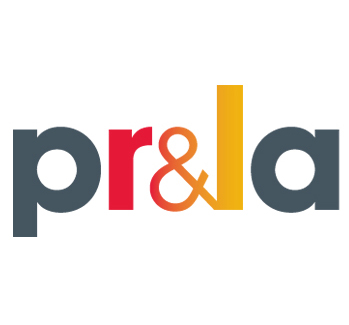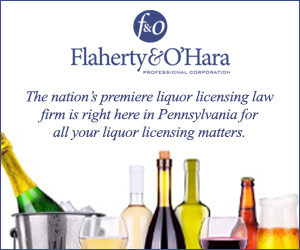CBD-infused cooking and cocktails led the 2019 National Restaurant Association’s What’s Hot culinary forecast. But what exactly is CBD and why is it everywhere?
What is CBD?
CBD, short for cannabidiol, is a chemical compound found in the cannabis or hemp plant. CBD won’t make you high, that’s a different chemical called THC (tetrahydrocannabinol). CBD may have other health benefits, but additional research is required.
What are those health benefits?
Despite the wild claims of some CBD manufacturers, it won’t cure cancer. CBD users have said it has helped reduce inflammation, anxiety, insomnia, and pain; however, these claims remain largely unproven according to medical researchers. Research has found that CBD is an effective treatment of childhood epilepsy conditions, and the FDA recently approved the first cannabis-derived medicine as a treatment.
Is CBD legal?
While it is readily available nearly everywhere, the legal status of CBD is still a relatively gray area. The government’s position depends on whether the oil was sourced from a hemp plant or a marijuana plant.
Hemp and marijuana plants are virtually indistinguishable from one another just by looking at them. The difference lies in the level of the THC chemical present. A hemp plant has less than 0.3 percent THC present. Everything above 0.3 percent THC would be considered marijuana.
In Pennsylvania, where only medical marijuana is legal, oil sourced from the marijuana plant, called CBD cannabis oil, is only legal for qualified patients and follows all the medial marijuana laws.
Thanks to the 2018 Federal Farm Bill, which legalized industrial hemp and its derivatives (including hemp CBD), you can purchase CBD hemp oil in Pennsylvania without a prescription. The Federal Farm Bill does permit states the ability to be more restrictive. For example, Virginians can only buy and possess CBD oil from either source if they have a prescription.
According to the FDA, CBD remains federally unapproved as a food additive. Enforcement by the FDA has been primarily focused on warning letters to companies that marketed their CBD products as capable of preventing or treating serious diseases. The agency also has advised against identifying the substance as a dietary supplement.
Bake Magazine summed the legal situation as follows:
“The lack of regulation from the FDA, ever-changing state and local laws and CBD’s popularity with consumers has created a Wild West marketplace. In a vacuum of standardization, consumers are at the mercy of suppliers and producers.”
The FDA held a public hearing on May 31 on the legalization of CBD-infused foods and beverages and allowed public comment through mid-July. The FDA is now sifting through more than 3,000 comments to develop its path forward.
Enforcement has been left to state and local officials. California, where recreational marijuana is legal, has cracked down on CBD-infused food and drink by forcing small businesses to pull products off their shelves after receiving complaints. New York City health inspectors removed CBD products from a number of restaurants, and officials in Ohio and Texas are increasing enforcement as well.
The Pennsylvania Liquor Control Board is expected to release an advisory opinion stating that, in their opinion and because of the FDA’s position, it is illegal to use CBD as an ingredient in alcoholic beverages.
Is it safe?
According to the Harvard Health Blog, the number one safety concern with CBD is not its side effects (nausea, fatigue, irritability, and medication interaction) but rather that it is primarily marketed and sold as a supplement. The FDA does not regulate the safety and purity of dietary supplements. Since no one is policing the purity, identity, and composition of CBD products on the market, low quality and tainted products are flooding it.
Researchers at the University of Pennsylvania found that nearly 70 percent of CBD products sold online are mislabeled, meaning some contain no CBD at all while other contain amounts much higher than what’s listed on the label. Low quality products may have higher than 0.3 percent THC, residual chemical solvents from the extraction process, like butane, or pesticides.
Ultimately, it’s up to the consumer to do their homework. Be wary of “cure-all” or outlandish claims. A company making a claim that their product will cure a disease is a huge red flag.
In addition, there are no standard dosing guidelines so figuring out the minimum dose needed is by trial and error.
How Do I take CBD?
You’ve done your research, identified a reputable product, and are now ready to give it a try—but how?
The most popular methods of taking CBD include using a tincture, inhaling through vaping, using it topically, or ingesting it through infused food or beverages.
What about CBD in food and beverages?
While the FDA has said adding CBD to food or beverages is illegal, that’s not stopping the individuals from adding it to their morning coffee or industry from getting ready for a world where it’s legal. CBD absorbs in your body best if taken with fatty acids, like those found in oils, meats, fish, avocados, etc. A quick Google search for CBD recipes yields 16 million results.
Ben & Jerry’s announced on its website in May 2019 that it’s eager to get in on this trend—as soon as CBD is legalized at the federal level—and pledging to source its CBD from its home state of Vermont.
Bloomberg.com reported last September that Coca-Cola is interested in developing beverages infused with CBD. Unsurprising, the big beer companies have aggressively been positioning themselves to cash in on this new market. Forbes.com noted in May 2019 that Molson Coors, Constellation Brands (Corona’s parent company), Labatt (an AB InBev subsidiary), Diegeo (owns Guinness Brewing), and Lagunitas (owned by Heineken) have already made direct investments in the space, too. Most are developing products to test in the Canadian market (Canada legalized recreational marijuana in 2018).
Economists are projecting the CBD market will jump from $200 million in 2016 to $16–25 billion by 2025.
Despite CBD’s legal uncertainty, it is certain that CBD is only going to grow in popularity and use over the next few years. •











